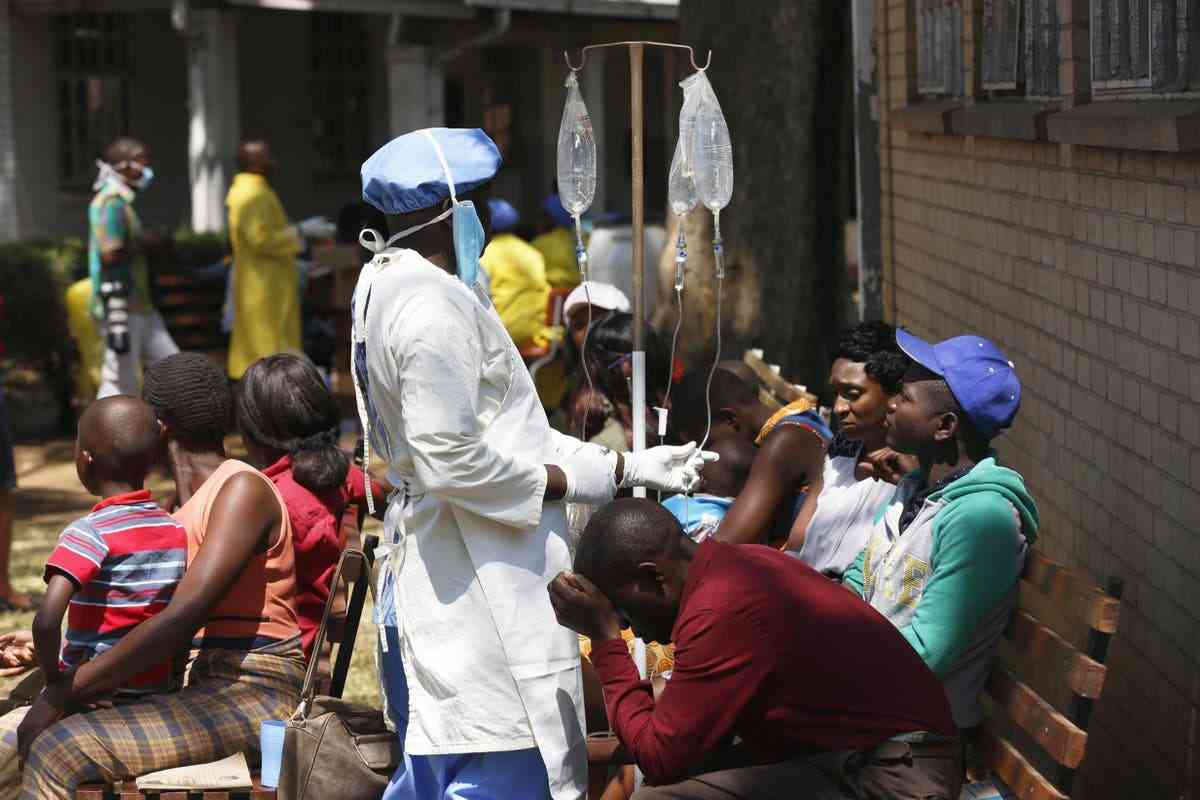
AFTER years of relative calm, Zimbabwe has been grappling with a cholera outbreak since February 12, 2023.
This resurgence is not an isolated incident, as 10 more countries (Malawi, Mozambique, Somalia, Kenya, Ethiopia, Zambia, South Sudan, Burundi, Tanzania and South Africa) in eastern and southern Africa are facing similar challenges with cholera, an acute watery diarrhoea.
To date, 13 176 suspected cases and 1 543 confirmed cases have been reported. This stark reality underscores the need for continued co-ordinated action to control the spread of this preventable disease.
Several factors contributed to the resurgence of cholera in Zimbabwe, including:
- Poor water and sanitation infrastructure: Inadequate infrastructure hinders access to clean water and proper sanitation, making communities more susceptible to cholera outbreaks.
- Gaps in personal and food hygiene have contributed to the increased risk of cholera spread since it is transmitted through faecal oral route.
- Health literacy gaps in the general public on the causes, modes of spread and prevention of cholera infection.
- Deteriorating economic conditions: Poverty and lack of resources can limit access to clean water and sanitation, further exacerbating the impact of cholera outbreaks.
- Climate change is also playing a significant role in the spread of cholera. Droughts, which are becoming increasingly common, reduce access to clean water and create ideal conditions for the bacteria to thrive.
Cholera outbreaks in this era are unacceptable. This preventable and treatable disease should not claim lives, especially when access to clean water and sanitation is a basic human right.
Most of the affected communities have outdated water and sanitation infrastructure. This, coupled with water scarcity due to droughts, creates a perfect storm for cholera outbreaks.
The following actions are crucial to control the outbreaks and prevent further spread, and the World Health Organisation (WHO) is already supporting the government of Zimbabwe in some of the areas:
- Improve access to clean water and sanitation: This is the cornerstone of prevention and requires substantial investment in infrastructural development.
- Raise awareness and engage communities: Educating communities about hygiene practices and early symptom recognition is essential for early intervention.
- Strengthen early warning surveillance: Prompt detection and response to outbreaks are critical to minimise casualties.
- Ensure good quality clinical management: Timely and appropriate treatment saves lives and reduces mortality rates.
While oral cholera vaccines are a valuable tool, they are not a substitute for clean water and sanitation. These remain the primary interventions to prevent cholera, which can be effectively treated with oral rehydration solution and antibiotics in severe cases.
- Mavhunga puts DeMbare into Chibuku quarterfinals
- Bulls to charge into Zimbabwe gold stocks
- Ndiraya concerned as goals dry up
- Letters: How solar power is transforming African farms
Keep Reading
Cholera is a deadly threat, but it is not invincible. By working together and ensuring access to basic interventions, we can prevent needless deaths and create a healthier future for all.
We are grateful for the support we have received so far from the Health Resilience Fund, a pool of funding by the European Union, UKaid, embassy of Ireland and GAVI, The Vaccine Alliance.
We are thankful for the support from the United Nations Central Emergency Response Fund as well as the government of Germany.
Between December 11 and 17, 2023, Zimbabwe saw about 900 new possible cholera cases, a slight decrease from 1 027 cases from the previous week. The outbreak is currently focalised in Harare, Manicaland as well as Masvingo provinces.
- Harare has had a gradual reduction of cases. However, a 60% increase in cases was observed in week 49 compared to week 48.
- Chitungwiza City has seen a decline in cases.
- Buhera has been consistently reporting cases. There is a sustained outbreak in the district with an average of 20 new suspected cases on a daily basis.
- Mutare rural district has also been consistently reporting cases. There is an average of 24 cases on a daily basis.
- In Masvingo province, cases have been reported mainly from Chiredzi and Gutu. In the past week, Gutu reported 70 cases, followed by Chiredzi with 25 cases.
Zimbabwe has had two major historical outbreaks, The first in 2008/09 as well as the 2018 outbreak. The 2008/09 outbreak resulted in 98 592 cases with 4 288 deaths (case fatality rate 4,3%), making it the largest outbreak ever recorded in the country. - WHO











